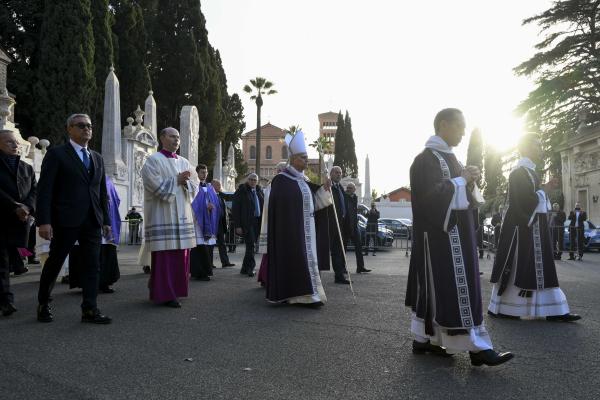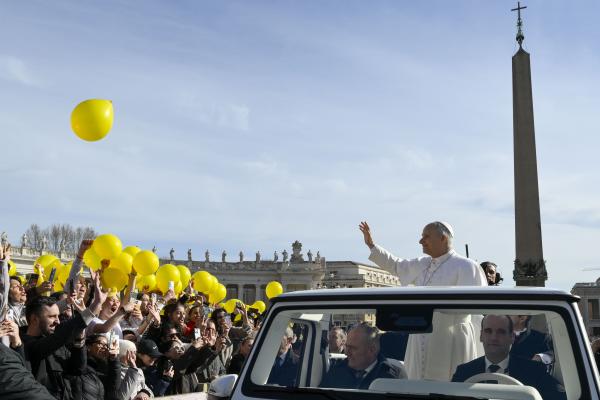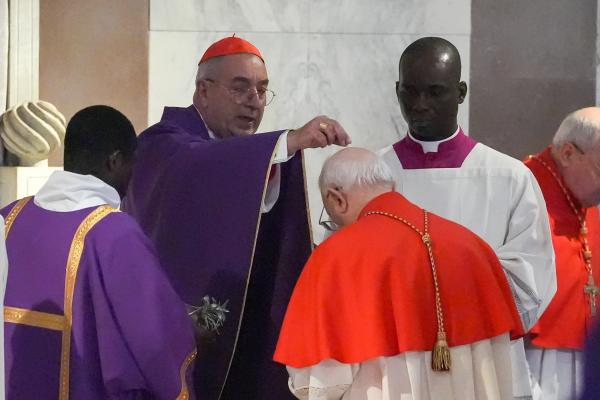Political leaders must fix wealth gap, promote religious freedom, pope says
During the Jubilee of Governments, Pope Leo XIV met with a group of political leaders and urged them to promote a more equitable distribution of resources, defend the marginalized and safeguard religious freedom.
He also said they have to help guide AI development in ways that uphold human rights and dignity.
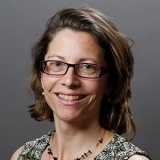 Carol Glatz
Carol Glatz
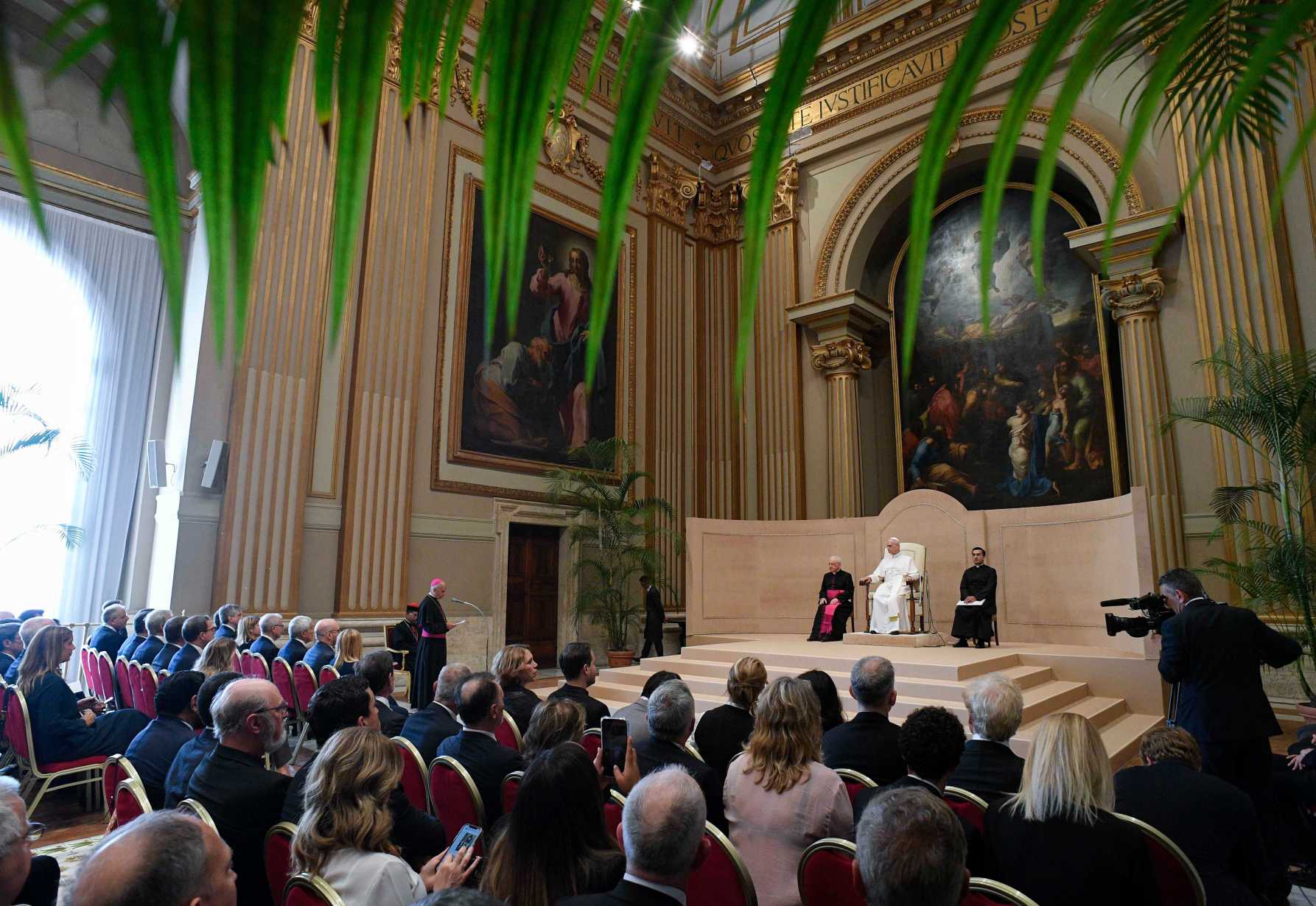
Pope Leo XIV addresses people attending the Conference of the International Inter-Parliamentary Union during an audience in the Hall of Benediction at the Vatican June 21, 2025. (CNS photo/Vatican Media)
VATICAN CITY (CNS) -- The huge economic divide between rich and poor today is unacceptable with so much wealth concentrated in the hands of a few, Pope Leo XIV said.
Political leaders have a responsibility to promote the good of the entire community, especially by defending the vulnerable, the marginalized and the poor, he told speakers and members of parliament attending a Rome conference about democracy and interfaith dialogue during the Jubilee of Governments.
"Sound politics," he said, promotes "the equitable distribution of resources," which "can offer an effective service to harmony and peace both domestically and internationally."
The pope met with the group during an audience at the Vatican June 21. The group was made up of people attending the June 19-21 Conference of the Inter-Parliamentary Union in Rome. The conference brought together speakers and members of parliament with representatives of religions, governments, international organizations, faith-based and civil organizations, and academia.
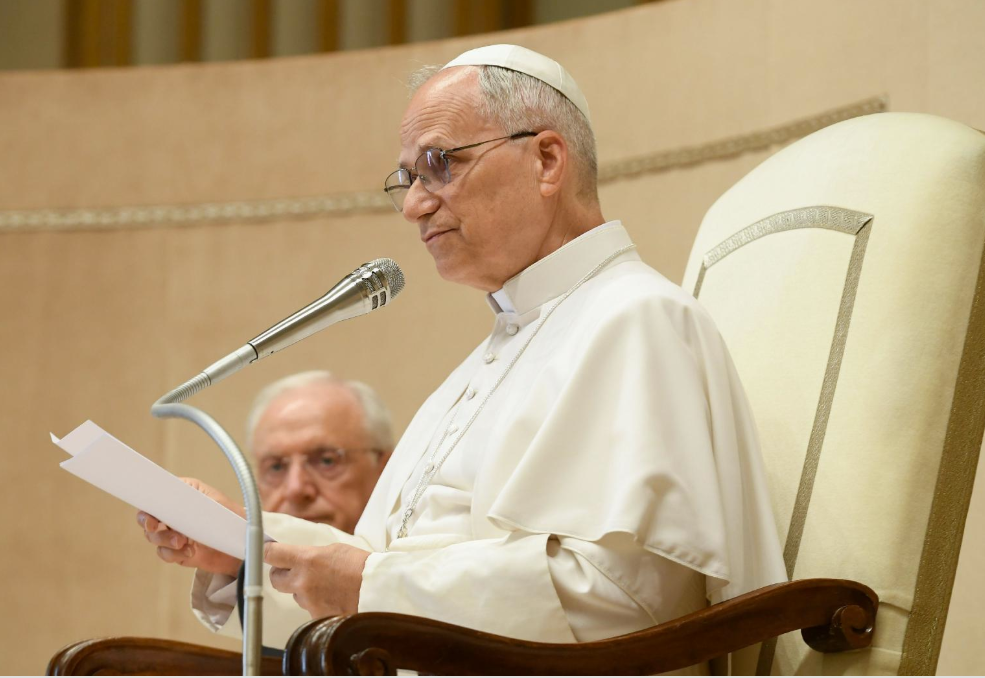
In his speech, the pope said they have a "responsibility to promote and protect, independent of any special interest, the good of the community, the common good, particularly by defending the vulnerable and the marginalized."
"This would mean, for example, working to overcome the unacceptable disproportion between the immense wealth concentrated in the hands of a few and the world's poor," he said. "Those who live in extreme conditions cry out to make their voices heard and often find no ears willing to hear their plea."
"This imbalance generates situations of persistent injustice, which readily lead to violence and, sooner or later, to the tragedy of war," he said, calling for a more equitable distribution of resources.
Pope Leo also underlined the importance of religious freedom and interreligious dialogue.
"Political life can achieve much by encouraging the conditions for there to be authentic religious freedom and that a respectful and constructive encounter between different religious communities may develop," he said.
"Belief in God, with the positive values that derive from it, is an immense source of goodness and truth for the lives of individuals and communities," he added.
"In order to have a shared point of reference in political activity, and not exclude 'a priori' any consideration of the transcendent in decision-making processes, it would be helpful to seek an element that unites everyone," which, he said, is found in natural law.
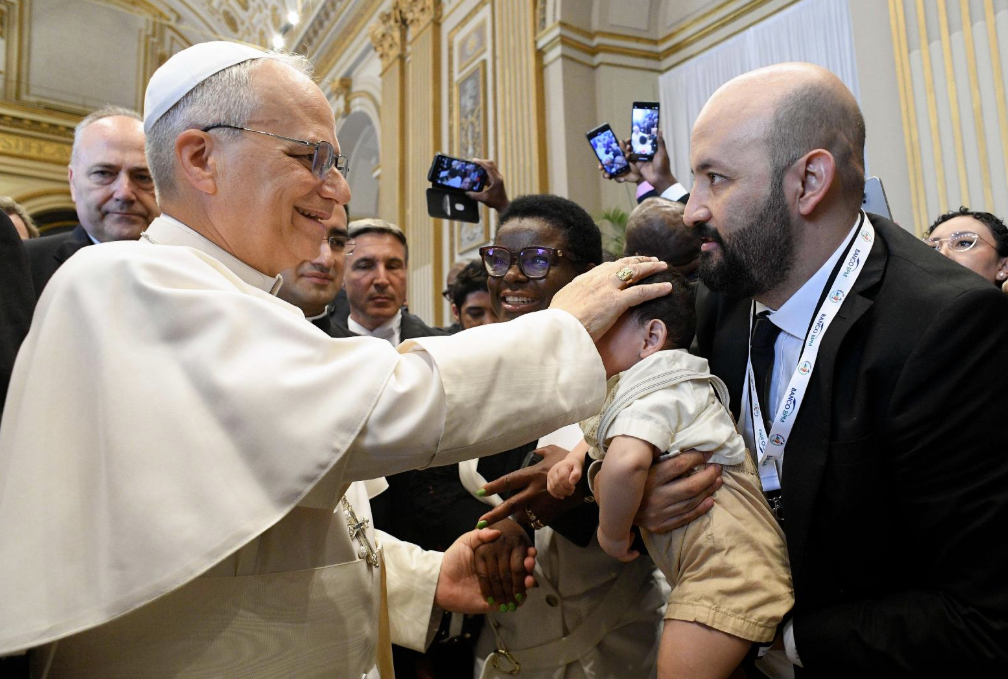
"Natural law, which is universally valid apart from and above other more debatable beliefs, constitutes the compass by which to take our bearings in legislating and acting, particularly on the delicate and pressing ethical issues that, today more than in the past, regard personal life and privacy," he said.
The Universal Declaration of Human Rights also "can contribute greatly to placing the human person, in his or her inviolable integrity, at the foundation of the quest for truth, thus restoring dignity to those who do not feel respected in their inmost being and in the dictates of their conscience," he added.
Lastly, Pope Leo said, politics cannot ignore the challenge of artificial intelligence. "On the contrary, it is called to respond to many citizens who rightly look with both confidence and concern at the issues raised by this new digital culture."
"The degree of civilization attained in our world and the goals you are charged to achieve are now facing a major challenge in the form of artificial intelligence," which will be of great help to society as long as it "does not undermine the identity and dignity of the human person and his or her fundamental freedoms," he said.
"Artificial intelligence functions as a tool for the good of human beings," he said, and it should not diminish or replace people.
"Our personal life has greater value than any algorithm, and social relationships require spaces for development that far transcend the limited patterns that any soulless machine can prepackage," he said.

